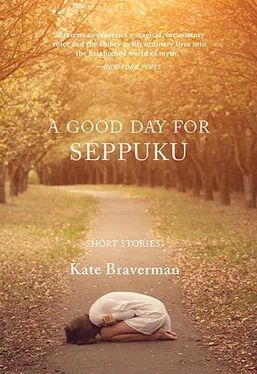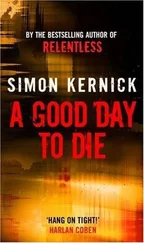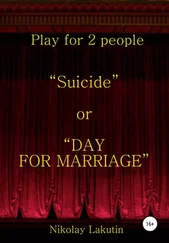It’s sunset. Barbara Stein walks south past tattoo parlors, bistros and piercing shops. On the boardwalk, women younger than Elizabeth when she first ran away stick out their palms for dimes. Their eyes are sheeted portals. They have tornadoes in their faces. Still, they’re some version of her 10th grade students with their round faces and wide-into-the-wind eyes. They could wear the clothing of Allegheny Hills High School. In a group photograph, they would look like cousins or classmates.
Barbara Stein isn’t going to find her daughter and she isn’t getting a tattoo. She is forty-seven years old. She’s lived longer than Billie Holiday and Frida Kahlo, Judy Garland and Anne Sexton. Of course she wanted less, took a measured route, but still, there’s a triumph in the simple enduring. Elizabeth will not live this long.
Barbara Stein considers all the women of Los Angeles and Boston, Rio de Janeiro, Bangkok and Shanghai. A legion of middle aged women strolling boulevards named for royalty, psychotics and saints. They could feed one another’s broken and ravaged daughters. In Barcelona and Amsterdam, in all port cities where the ships come in and children lay on pavement, we must offer them bread and carry them home.
She knows that some children don’t want just one box of crayons. Some reject certain colors entirely and scream when offered yellow or red. Some won’t color within the lines. Some are like Lena and can’t tolerate the air of this Earth. On boulevards named for queens and madmen, teenagers in Salvation Army jackets look up from the pavement, twitching and dazed, longing to be fed like malformed baby birds.
When Ulysses encountered the lotus-eaters, his crew threatened mutiny. They had to be dragged back to the ship, kicking savagely. Some girls can’t simply dial 911 and come home.
At Venice Beach, Barbara Stein sits on a bench facing a billboard where a model in a bikini posed in front of lurid green palm trees. HONOLULU written in pink neon at her bare feet. I am forty-seven, she thinks, and I will never see my daughter again. It’s time for the women to remove themselves from the posters where they are imprisoned. They must peel themselves off the images of implausibly flawless island resorts. They must separate themselves from the overly representational, the vulgar red orchids and garish yellow plumeria. They could climb down feet unsteady on asphalt and then begin walking. With each step, they would enter the enormity of their own unscripted lives.
But in the millennial global warehouse, which is not a village, our offspring curl fetal on sidewalks. We have learned not to notice them. They don’t register. They’re below our radar. We step around them as we once did foreigners with sores and scabs. They are lepers and consumptives. We must not speak to them.
Meanwhile, we are exchanging inappropriate confidences with counterfeit companions in an electronic vacancy. We are intimate with people in Madrid and Tokyo we’ve never met or ever will. The children at our feet are bad girls. They deserve to be sick and suffer. Rather than entering an astonishment we’ve become rigid and laminated. We do not even exchange your real names and serial numbers. We are all prisoners of war now and the Geneva Convention no longer applies. That’s what her students are telling her.
Mrs. Stein walks past fortune-tellers on blankets at the sand’s edge. They’re reading cards and palms as they have for six thousand years. Body-pierced young women who could be in her Allegheny Hills classes, returning to the apartment where Elizabeth briefly lived. She stands near the squat stucco building her daughter no longer enters or exits, memorizing its unique characteristics — the four aggressively vertical palm trees, how the sun is white, gritty as if layered with microscopic glass chips, pieces of cactus, and splinters from strangers’ teeth. Sun is a relentless deliberate assault, a series of flesh wounds. A fuchsia on a back balcony, stems like manic dangling and longing for the pavement. They want a mouth full of gravel. They want to be burned at a clinic for free.
Perhaps Elizabeth noticed the almost full moon and smelled the White Star Jasmine in the alley making the darkness scented and drunken. The Eucalyptus, vaguely medicinal, chalky and mysterious. Things bloom in dusk harbors where the trade winds have been and gone. Barbara Stein realizes, if it were the end of myth, there would be nothing to write about.
There are smuggled girls in shuttered alcoves behind tattoo parlors. Girls who ran away in journeys begun by prank and accident. The flesh is an acquired taste like opera and shellfish. Some girls need a tutor to show them the ropes. Teach them the tricks. Turn them out. Girls who couldn’t conceive of the cliffs between Ravello and Amalfi. Big Sur and Malibu were equally distant. The highway to Hana, jungle-side Maui, was beyond their ability. Athens and Shanghai felt contrived in their mouths. They were afraid of capitals.
They were simple as stones and bells. They smelled like glass on October afternoons. They were less than a thumbprint. They didn’t wear make-up, want to speak French or tour the Parthenon. Denim was fine. Spandex and bronze did not occur to them. They hadn’t heard the whisper that says lush are the ladies of the lamps, lit from within, heads dyed copper as coins. That’s why they needed a razor scar on the cheek, a fractured arm and black eye. You’d be surprised. That’s all it takes.
They remember April when they were still cotton panty girls. They had collections of arrowheads and butterflies and a drawer for just bows. Then the powders and injections and days turned Technicolor. They carry their accidents with them. Their coats contain a sadness that doesn’t require translation.
In this darkness, pirates and magicians, exiles and alchemists camouflage themselves as beggars. Names and identities are manufactured and exchanged for cash. Flesh is bartered for packets of brown fragments resembling tree bark. The air is charged. Lamplight is calibrated an elegant 14 carat, tinged with pear. Such a light can burn in deserted rooms for years, with no fear of suffocation or fire.
If we believe in sin and retribution, then antiquity must be continuous. The Minotaur is in the Allegheny Mountain farmhouse. He’s your mother’s new boyfriend. In pastures, bulls with bronze feet breathe fire. The Cyclops is your uncle. He’s coming for supper. Yes. Again. Brush your hair and put on that pretty dress he got for you. It’s not too short. You could thank him better. How’s that going to hurt? Want to get a reputation for a cold heart? And you don’t need GPS. You know where the labyrinth is. It’s past the path to the tool shed and patch of corn behind the trailer.
Barbara Stein stops on the edge of the Mohave and buys postcards of Los Angeles. She drives east, crossing the desert and mountains. She must accomplish this journey on her three-hundred-dollar budget. Three days of sunlight like sheets bleached a pure white and leaching the air, absorbing events until they’re rubbed away past intention.
She must patch her roof before the ambush of winter and tend to her garden — the canning and freezing and the ritual of blueberry jam. Then she’ll manufacture a three-page essay encapsulating her summer vacation. She’ll describe tropical vegetation, the colossus of wild magenta Bougainvillea blanketing the bamboo fenced edges, and the boardwalk with its skaters and fortune-tellers. She’ll note the Pacific was paler and cooler than she expected. She’ll say she might have seen a movie star wearing a baseball cap and sunglasses in a Jaguar, Mercedes Benz or Ferrari.
She has the postcards to provide the authority of detail — the bay below cliffs the color of flesh where wild purple succulents cling, and on the tame exhausted waters, fishing boats return in the late afternoon. Sometimes the fraudulent laminated illusions are enough. Conventional versions can also serve. Who is to say experience can’t be distilled to a 4x6 photograph?
Читать дальше






![Джон Харгрейв - Mind Hacking [How to Change Your Mind for Good in 21 Days]](/books/404192/dzhon-hargrejv-mind-hacking-how-to-change-your-min-thumb.webp)





